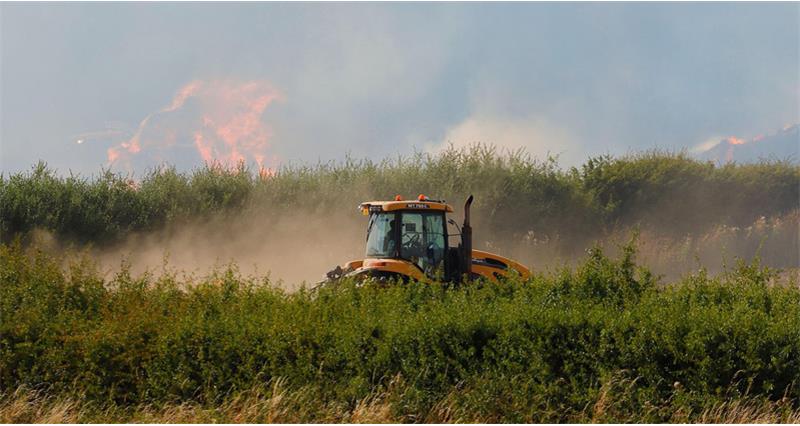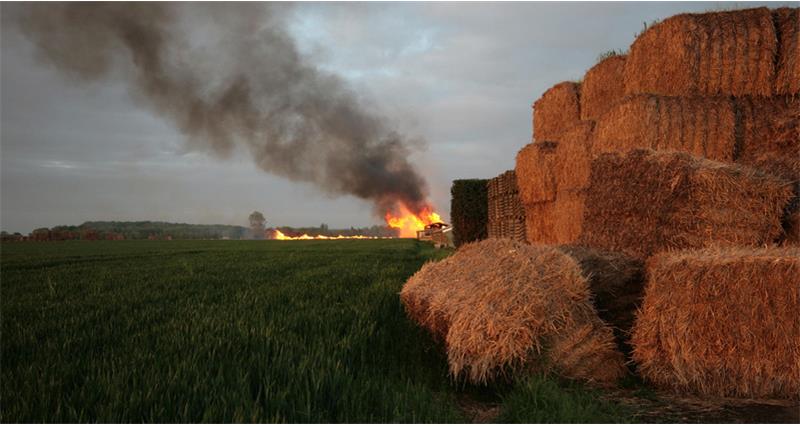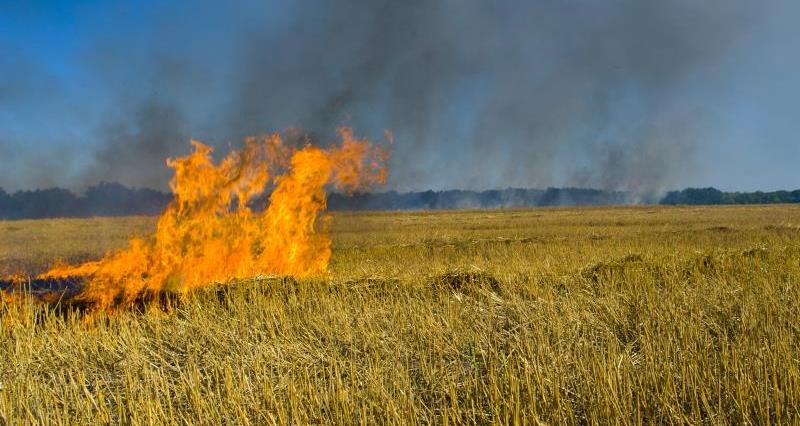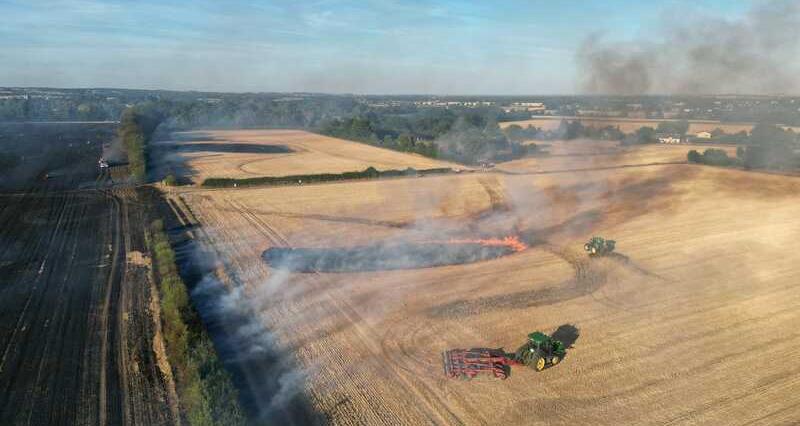Over the past year, a significant number of fires have been reported on farm in various regions, many of which have been intensified by unusually dry land conditions linked to periods of low rainfall and rising temperatures.
Among the leading causes has been the careless use of disposable BBQs and arson. This is why it is imperative that every farm has an awareness of how to prevent and manage fires.
1. Secure flammable substances
Ensure flammable substances are securely stored away from public. This can include fuel stores, fertilisers, hay and straw bales and chemicals.
In particular, bales can be a target for arson; try to keep them away from any areas of public access. If this is not possible, put in measures to prohibit public access to the bales, such as fencing.
2. Have a fire emergency procedure plan
It is a legal requirement to complete a fire emergency procedure plan and keep it in a clearly marked place in the event of an emergency.
This must include details of the responsible person(s) on the farm, muster points, evacuation routes for people and livestock, locations of flammable substances and potential sources of ignition, and locations of fire extinguishers and water sources. Information and training must be provided to all farm workers on the emergency procedures and correct use of fire extinguishers.
3. Use separate storage units
Keep flammable substances and sources of ignition in separate storage units, and at least 10 metres away from livestock. Lithium powered equipment and machines should also be taken into consideration, as these can be self-igniting.
4. Check electrical equipment
Ensure electrical systems and equipment are fit for purpose and in appropriate working order, and do not pose a fire risk. Regular inspections of electrical equipment and installations will help to identify issues. Replace or repair faulty equipment immediately to prevent fire risks.
5. Make use of local resources
Discuss with the local fire service about the prevention and emergency measures in place, to ensure they are suitable and practical. Local WhatsApp groups can be useful in notifying of incidents of arson in the area, to allow other farmers to manage the risk appropriately.
In the event of a fire contact emergency services immediately. Use what3words to direct the fire service. Prepare to evacuate livestock and ensure that you are in a position to assist the fire service.



